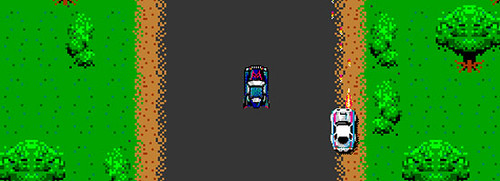
I wrote an “analysis” for the newspaper Politiken (4 Sep) on the issue of violent games and aggressive behaviour. The immediate reason was recent press releases from the American Psychological Association purporting strong claims based on absurdly low-powered new recearch (an informal 5 page research review presented at the association’s yearly meeting).
I strongly suggested that there were good reasons to be skeptical of many standard (social psychological) experimental studies into this issue.
The editors, as it happened, made a few additions/changes. One was the headline which they changed to “Video games cause violence – just as children come with the stork, right?”. This was an allusion to the problem of mixing correlation with causation (an increase in storks has, during a certain period, correlated with an increase in child-birth).
The editors also added a sub-heading: “All studies to date which claim to establish a connection between computer games and violent behaviour rest on shaky scientific foundations”. Now, this is somewhat in line with my argument but I would not myself have put it as strongly simply because the problems with the studies are very different and depend upon a great number of assumptions.
Finally, the editors added the “What link?” graph from a recent The Economist article with the caption “The claim that video games cause violence has no basis in reality. On the contrary, the number of violent assault in the US is decreasing while sales of video games are on the rise.”
But of course, while the graph is surely thought-provoking, it does not prove the claim in the caption. In fact, it is interesting but obviously dangerous in such a critical article where any error will, of course, be flung back in the author’s face.
That happened in yesterday’s Politiken when a Bjarne Frandsen felt that the graph indicated either “manipulation” or “an amazing degree of ignorance concerning elementary statistics”.
I just send my objections to be (hopefully) printed as a brief letter to the editor.
It will be interesting to see if there are more reactions, whether to my text or to the additions of the editors.


